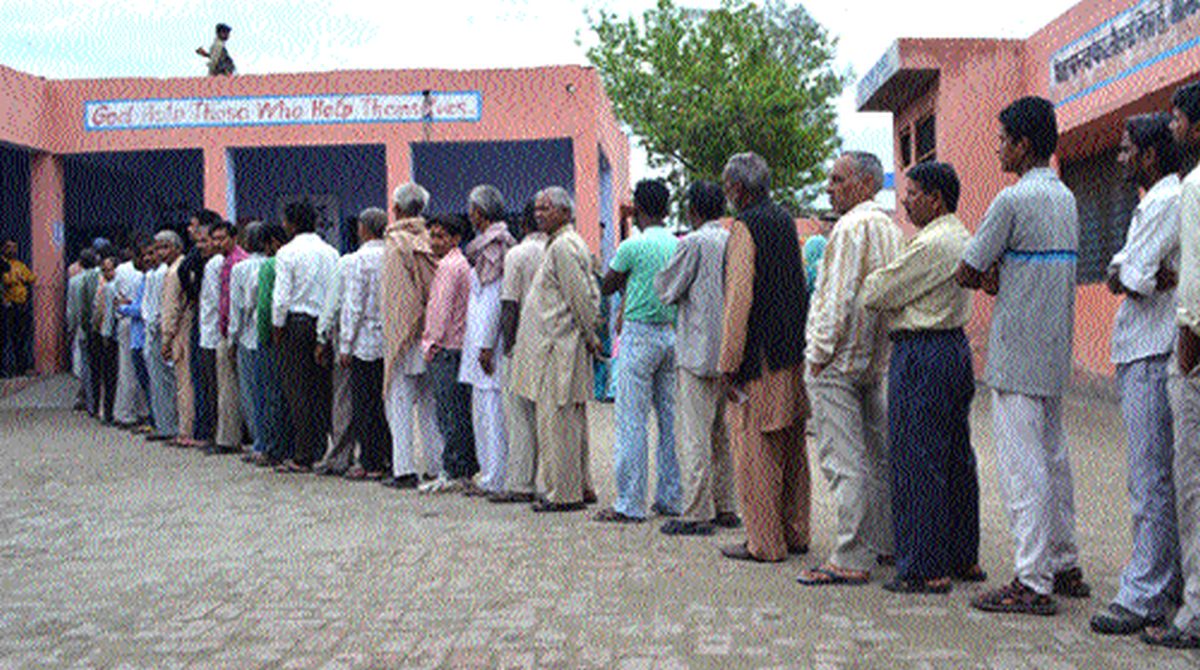One of the ploys that has been used to foment majoritarian grievance is ‘minority appeasement’, defining its scope as indulging the religious minorities ~ Muslims in particular ~ to the detriment of Hindus. What is the truth about this alleged aberration?
First, no government has had anything to do, directly and meaningfully, with the members of any minority religious community. They traded and trafficked in tokens, for diversionary purposes, with the putative leaders of these communities, who were always a class apart from their co-religionists, hitched to agendas indifferent to the welfare and empowerment of their lowly brethren. The measures of “appeasement” showcased from time to time involved no more than a public charade played by those in power and those who represented these communities.

In nearly fifty years I haven’t come across a religious leader who prioritized the welfare of his community over his own interests. It’s no secret that the elite in a community ~ especially in a minority community ~ have more in common with the elite in the majority community than with their own fellow believers. It is also the case that the benefits of the alleged measures of appeasement hardly reached the rank and file among these minorities. Nobody ever appeased them or even cared for them.
Second, and more importantly, ‘minority’ and ‘majority’ communities have been misleadingly identified. For no government, including the present one, religious communities have existed as they exist for the rest of us. From the dizzy heights of the Qutab Minar of Governance in New Delhi, religious communities dwarf into invisibility. Religion itself ceases to matter. What matters is economics, which drives votes, vote-banks and politics in general. And it is in this respect that minority appeasement has been the dominant feature of our political culture.
But before reckoning the dynamics of appeasement politics, a word about religions. The fact is that we don’t have many religions. If we go by how life is lived ~ which is the relevant criterion for judging religiosity ~ religions, in their spiritual distinctiveness, have little to do with how we live. I tremble to think of myself as a Christian for the reason that, though a priest, I am nowhere near the mark that Jesus Christ has prescribed for his followers. What I have done for decades is to condition people to stay loyal to the church, assuming it to be, for reasons I never bothered to find out, the proprietor of Jesus’ spiritual legacy. But the church has very little to do with the way of Jesus. It runs on money, even as it markets Jesus. The sexual scandals that are coming to light are only epidemic rashes of this hypocrisy. This could well be true of all other religious communities; though that is not for me to judge.
Strictly speaking, India is not an example ~ as we are wont to claim ~ of the harmonious co-existence of religions. India is an example, instead, of religious homogeneity, with Mammon-worship as our shared, lived religion. That is why places of worship are rich and the people are poor. Yet it is the poor who are more ardently religious and most sacrificial in financing religious establishments. To mask this mendacious reality, it is necessary that members of various religious communities are made to hate and fight each other. Nothing is more dangerous to the present type of religiosity than people loving each other and, in the process, discovering the liberating truth that they are all equally children of God.
To go beyond the insecurely guarded religious boundaries is to realize that all religions are one, and that the religion we practice is Mammon-worship. God is a headache for it. The reason for this is not hard to see. God is universal, not parochial. He is the fountainhead of love, which is bad news for merchants of hate. Whoever is in tune with the will of God will also be in harmony with their fellow human beings, irrespective of their labels.
The zeal with which sectarian gods are promoted does not stem from love of God, but from the love of power and pelf, which dictates that the people are kept deceived and polarized. Hate prevents people from functioning as individuals. it degrades them into herds, readily vulnerable to propaganda and manipulation. All religions use hate in varying ways and degrees. The irony is this: as long as I believe in a Christian God, who dislikes all others, I am anything but Christian. If Christians had realized this basic truth, the history of Christendom would have been far less embarrassing.
So, the real divide is not on the basis of religion, but of wealth. That divide is sharper now than ever before. A pointer to this is the fact that the number of billionaires in India has doubled in the last three years, without any significant increase in wealth generation. The benefits that the government showers on the corporates are humungous. In the last budget, the concessions and incentives extended to the corporates were several times greater than the concessions to the rest of the people, numbering about 130 crore.
The government looks the other way when this privileged minority loots our banks and bleeds our country, the burden of which falls on all of us. Non-performing assets keep mounting, while farmers are driven to suicide for their inability to pay back peanut loans. No government dares to meddle with the appeasement of the richest in our country. It is, instead, justified and rationalized as a necessary catalyst for “development”.
Truth is the sentinel of freedom. A people who are willing to be misled, their eyes willfully shut against the truth, condemn themselves to endemic exploitation. The clinching proof that Indian democracy is so inclined is the emergence of hysterical masses as its decisive national feature. As a rule, masses are not ‘appeased’ but entertained by demagogues. Masses need not be appeased. Only individuals need to be. Corporates are a spurious community; a conglomeration of aggressive, self-seeking individuals. The fusion between the State and this ‘minority community’ is the hidden grammar of governance today. All else is mere propaganda.
The writer, a former Principal of St. Stephen‘s College, is a theologian committed to social justice and God-centred harmony of all faiths.











